The Biggest, Baddest Bubble of Them All
It’s election day, and I may as well try to fuse economics and politics for a moment.? Personally on an economic basis, I don’t think this election means that much.? Consider this post at RealMoney from earlier this year:
| David Merkel | ||
| Cultures are Bigger than Economies, Which are Bigger than Governments | ||
| 1/7/2008 1:19 PM EST |
To start this off, I don’t fit neatly on the political spectrum. I am an economic libertarian, socially a conservative, but utterly against the recent wars that we have pursued. I also think that we need to find a way to dismantle the two party system, but that will never happen. So now you have enough to disregard me if you like.
I don’t think the primaries make any difference at all. The three leading Democrats are all very alike. It doesn’t matter which one wins the primary. The Democrats would have their best chance with Obama, because general elections tend to be won on (sadly) which candidate is more likeable.
As for the Republicans, there are differences, but not to any great degree on likely economic policy. I say “likely economic policy” because none of their differential policies are likely to survive if one of them wins the general election. Any Republican win is unlikely to have that much of a mandate.
There are differences between the Republicans and Democrats on economic policy, but this is where my headline comes into play: “Cultures are Bigger than Economies, Which are Bigger than Governments.” Given the mismanagement of our government, particularly with respect to entitlement programs, though also costly wars, future governments will have less wiggle room. Raise spending, cut taxes? Go ahead and try. No surprise that the US Dollar continues to fall. Outsiders will eventually tire of funding US deficits in US currency.
The Republicans will leave the micro-economy more free than the Democrats, but aside from that, I don’t think the election matters much, at least as far as economics goes. There may be other reasons to vote for one side or the other, but pocketbook issues rank low for me, and in this election, the payoff from the differences will not be big.
Now, cultural change, in the unlikely event that it would occur, is another matter. But American history has been replete with big shifts before, and the economy and politics get dragged along. Perhaps the question to ask is what will be the next big shift in American culture? I don’t have any read on that now, but then, when it happens, it is often fast.
Position: none
Our biggest bubble, which is still inflating, are the debts of the US Government, both explicit and those not accrued for.? We are going to have a difficult time borrowing in the present for all of these new bailout/stimulus/pork programs.? Our debts are getting deeper, not shallower.
Consider this graph from this article at Clusterstock:
We may have a slight breather from the increase in total debt recently (2006-7), but it is going up in the near term.? My view is that we need delevering, and that will be a big theme in coming years once the government tires of the new policy of shifting private debts onto the public balance sheet.
Now, I’m still dubious that the bailout policy will work.? Reasons:
- We’re still unclear on what bailout money is for.? Consider the banks.? Is it so they can lend, buy marginal banks, or so they don’t go insolvent?? (No, Barney, there is no direct way to force them to lend…)
- With some banks, it may be the latter, as commercial real estate goes into its slump.
- It encourages banks to take more uncalculable risks.
- We’re just creating a new set of problems, which may give us a different type of depression.
- Where the government is intervening in the markets, it seems to be replacing the markets, and not encouraging risk-taking on the part of private investors.
- Areas where the government isn’t intervening are still under stress.? When Verizon has to offer nearly 5% over Treasuries to get $3.25 billion of financing, that is stress.
- CDS is now pricing in significant US Treasury default risk.
When a foreign holder of Treasuries is willing to give up 40 basis points of yield on a 10-year T-note yielding 3.80%, so that they can get paid off in Euros if there is a repudiation of US Treasury obligations, there is significant uncertainty over the creditworthiness of the US Government.? (That’s just an example, there are other reasons to enter into such a CDS.)
Now, the debt-to-GDP graph above doesn’t take into account pension and entitlement underfunding/non-funding.? From another comment at RealMoney:
| |
David Merkel | ||
| Digging a Hole to China (So We Can Borrow Some More) | |||
| 10/28/03 08:26 AM?ET |
|||
| With a gracious assist from one of our readers at Economy.com, here is the link I promised yesterday. The report does not break out one final number — one has to look at the “balance sheet” on page 58, and the “Statements of Social Insurance” on page 65, which they count as an off balance sheet liability, and add them up. It looks like this (in USD):
This doesn’t take into account the value of land and certain less tangible assets that the U.S. Government has. It also does not take into account the considerable operating and capital lease liabilities, deferred maintenance, or liabilities for the GSEs, and other lending guarantee programs of the federal government. np |
|||
That $24.6 trillion figure was from September 2002. As of September 2007, it would now be around $50 trillion. ( Here’s the link to the 2007 figures.? New figures out in two months.)? By the way, thanks Mr. Bush, for being such a reformer of Social Security and Medicare. You added on another $10 trillion of unfunded liabilities that future generations will have to fight over bear in your prescription drug program.? You have been the most damaging president on economics since Nixon.? (Sorry, I lost my cool. 
That $50 trillion does not count in state and corporate underfunding of pensions and benefits.? Oh, and with the fall in the markets, they want a bailout also.
Who doesn’t want a bailout?? The US Government can just borrow some more to aid us on our way to prosperity.? Those debts and unfunded promises will have to be paid someday, either through taxes, inflation, or repudiation (total or external).? The economic mess at that point will be far worse than it is today for all those who rely on the US Dollar.
Our problems in the US are larger than our politics.? It goes down to our very culture, borrowing from the future to take care of the present.? It is true for our Government, and many corporations and individuals.? The pain will come, the only question now is what form it will take.





 )
)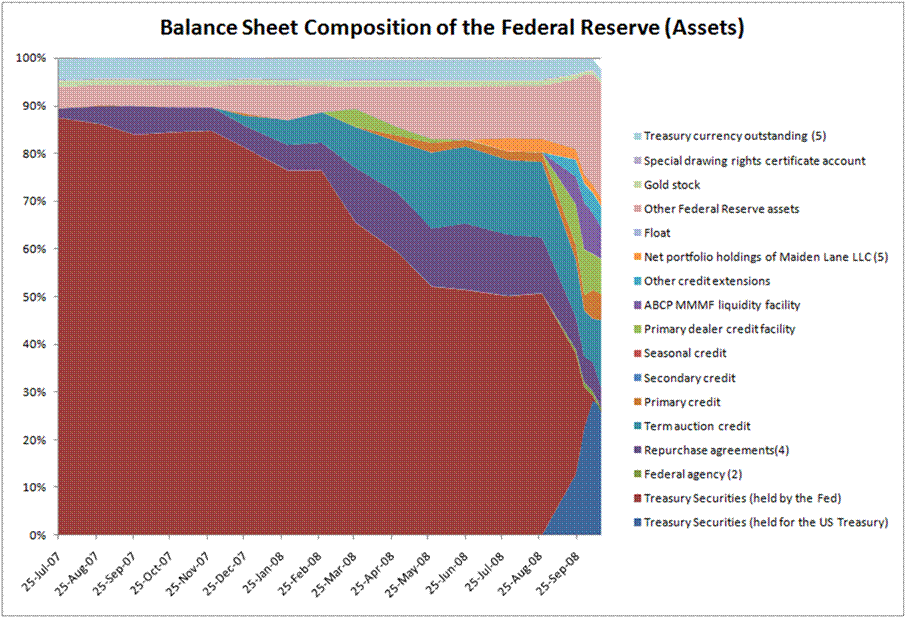
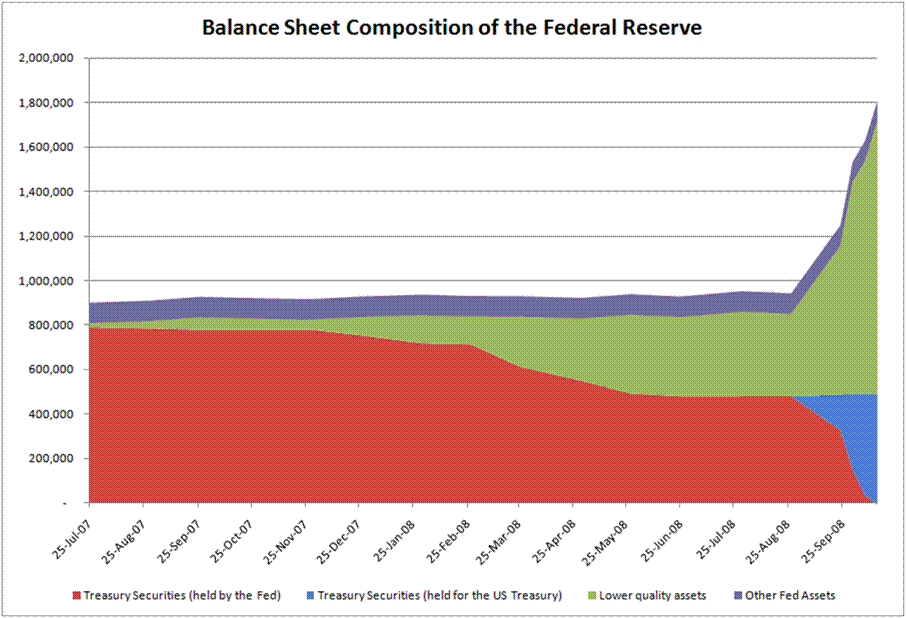
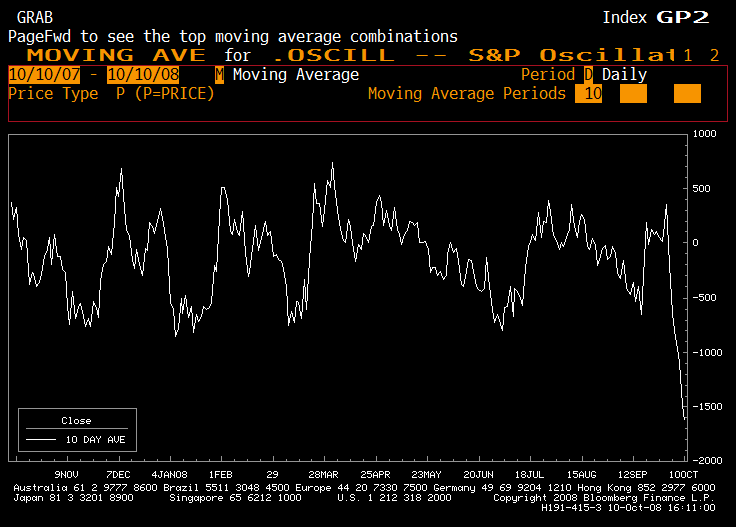

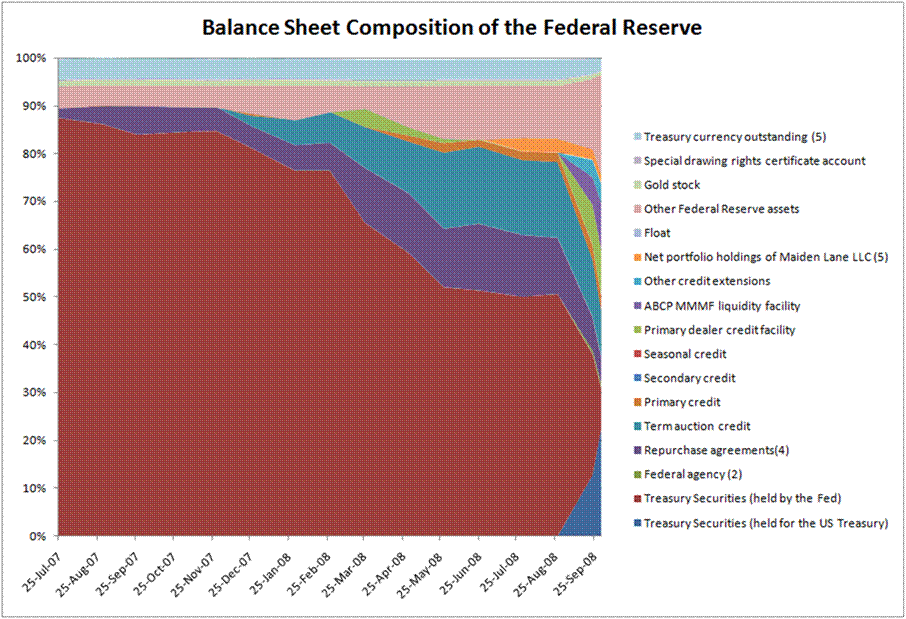
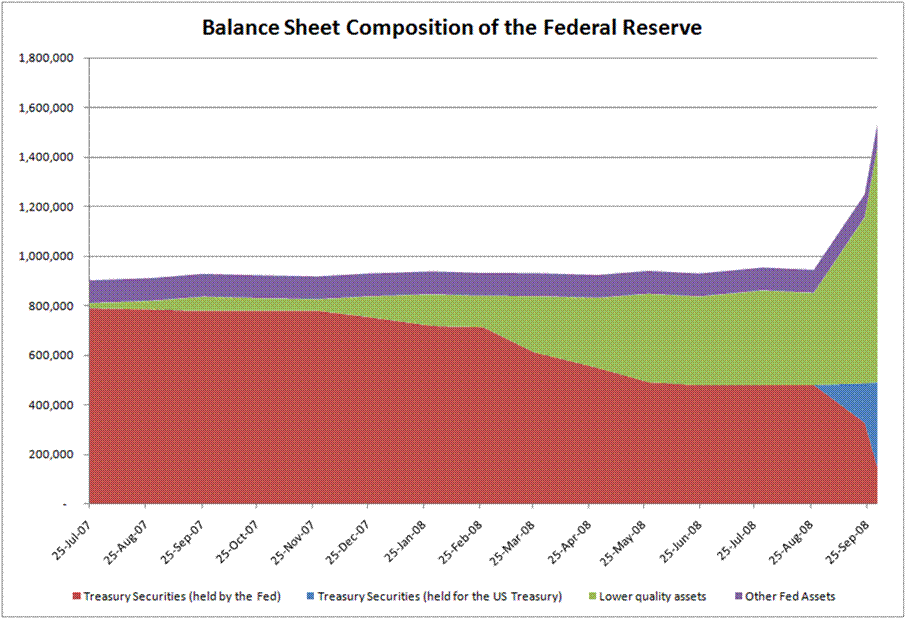

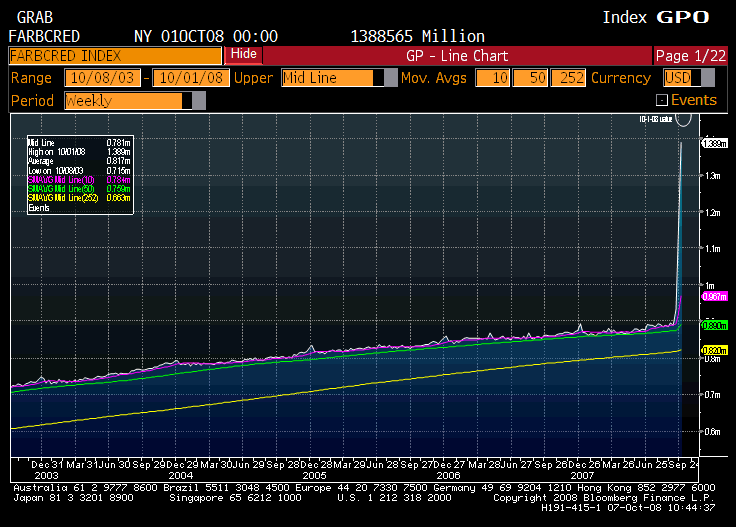
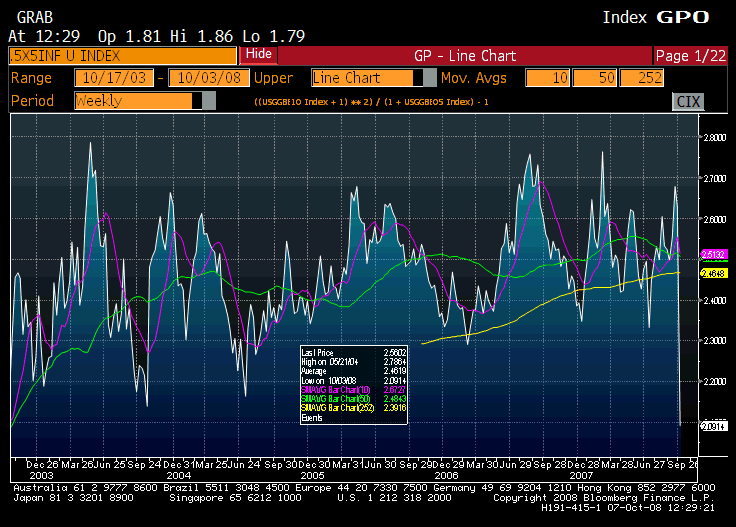
October 7th, 2008 at 9:58 am I think you pegged it calling it the Super-SIV. As I commented in late 2007 as the Fed began this series of interventions in lending markets, it is easier to start these actions than to complete them. It is hard to estimate all of the consequences.Just as I think George Bush, Jr., started to go wrong when he concluded that he had found his mission (fight terrorism, without boundaries), Ben Bernanke faces a similar problem (do whatever it takes to stop the Second Great Depression, without boundaries).
History is being made here, and it will be volatile?
And jck responded:
October 7th, 2008 at 10:14 am one thing we know for sure, is that the policy of ?promoting? liquidity appears to have backfired, no reasonable person would claim that markets are functioning better now than when they started?in fact some people would say they are a lot worse.
as you say David, very hard to get out of this, I don?t expect to see a normal Fed balance sheet, i.e treasuries_t-bills in my lifetime.
I will pop in for a comment on your euro piece a bit later?busy???